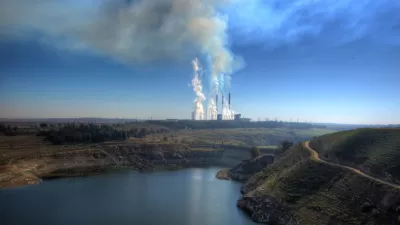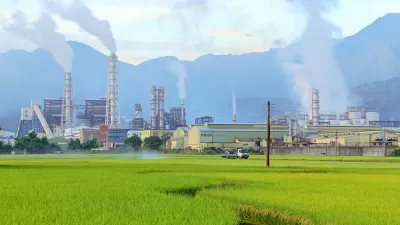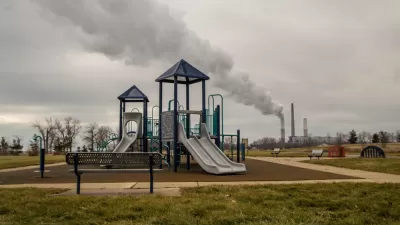Pollution is a growing problem throughout China - one that even tight-lipped public officials have been forced to acknowledge. But conflicting government interests - between state-run polluters and concerned policy-makers - are holding back fixes.
"So severe are China’s environmental woes, especially the noxious air, that top government officials have been forced to openly acknowledge them," reports Edward Wong. "What the leaders neglect to say is that infighting within the government bureaucracy is one of the biggest obstacles to enacting stronger environmental policies. Even as some officials push for tighter restrictions on pollutants, state-owned enterprises — especially China’s oil and power companies — have been putting profits ahead of health in working to outflank new rules, according to government data and interviews with people involved in policy negotiations."
"The state-owned enterprises are given critical roles in policy-making on environmental standards," Wong explains. "The committees that determine fuel standards, for example, are housed in the buildings of an oil company. Whether the enterprises can be forced to follow, rather than impede, environmental restrictions will be a critical test of the commitment of Mr. Li andXi Jinping, the new party chief and president, to curbing the influence of vested interests in the economy."
FULL STORY: As Pollution Worsens in China, Solutions Succumb to Infighting

Study: Maui’s Plan to Convert Vacation Rentals to Long-Term Housing Could Cause Nearly $1 Billion Economic Loss
The plan would reduce visitor accommodation by 25,% resulting in 1,900 jobs lost.

North Texas Transit Leaders Tout Benefits of TOD for Growing Region
At a summit focused on transit-oriented development, policymakers discussed how North Texas’ expanded light rail system can serve as a tool for economic growth.

Why Should We Subsidize Public Transportation?
Many public transit agencies face financial stress due to rising costs, declining fare revenue, and declining subsidies. Transit advocates must provide a strong business case for increasing public transit funding.

How to Make US Trains Faster
Changes to boarding platforms and a switch to electric trains could improve U.S. passenger rail service without the added cost of high-speed rail.

Columbia’s Revitalized ‘Loop’ Is a Hub for Local Entrepreneurs
A focus on small businesses is helping a commercial corridor in Columbia, Missouri thrive.

Invasive Insect Threatens Minnesota’s Ash Forests
The Emerald Ash Borer is a rapidly spreading invasive pest threatening Minnesota’s ash trees, and homeowners are encouraged to plant diverse replacement species, avoid moving ash firewood, and monitor for signs of infestation.
Urban Design for Planners 1: Software Tools
This six-course series explores essential urban design concepts using open source software and equips planners with the tools they need to participate fully in the urban design process.
Planning for Universal Design
Learn the tools for implementing Universal Design in planning regulations.
City of Santa Clarita
Ascent Environmental
Institute for Housing and Urban Development Studies (IHS)
City of Grandview
Harvard GSD Executive Education
Toledo-Lucas County Plan Commissions
Salt Lake City
NYU Wagner Graduate School of Public Service





























